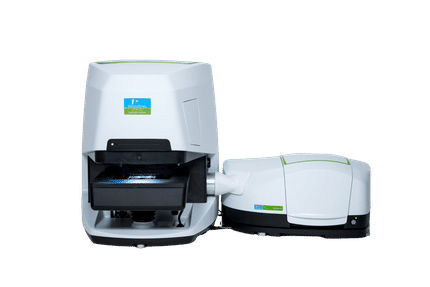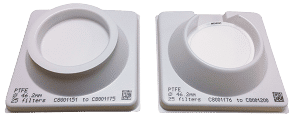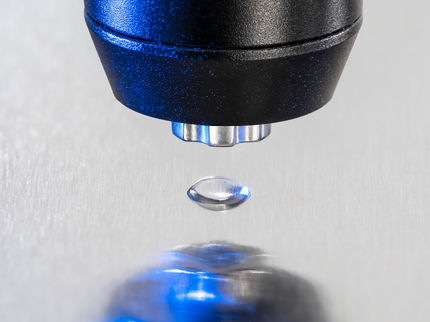A muscarinic receptor antagonist is an agent that reduces the activity of the muscarinic acetylcholine receptor. Most of them are synthetic, but scopolamine atropine are belladonna alkaloids, and are naturally extracted.
Important[1] muscarinic agonists include atropine, hyoscine, ipratropium, tropicamide, cyclopentolate and pirenzepine.
Comparison table
| Substance
| Trade names
| Mechanism[2]
| Clinical use[2]
| Adverse effects[2]
|
| Atropine (D/L-Hyoscyamine)
|
| non-selective antagonism, CNS stimulation
|
- in anaesthesia
- anticholinesterase poisoning
- bradycardia
- antispasmodic in gastrointestinal hypermotility
|
- urinary retention
- xerostomia
- blurred vision
|
| Scopolamine (L-Hyoscine)
|
| non-selective antagonism, CNS depression
|
- as atropine
- motion sickness
|
|
| Ipratropium
|
| non-selective antagonism, without any mucociliary excretion inhibition.
|
|
|
| Tropicamide
|
| short acting non-selective antagonism, CNS depression
|
- produce mydriasis and cycloplegia in diagnostics
|
- may cause ocular hypertension
|
| Pirenzepine
|
| M1 receptor-selective antagonist
- inhibits gastric secretion
|
- in peptic ulcer (not much anymore)
| (fewer than non-selective ones)
|
| Diphenhydramine
| Benadryl
|
|
|
|
| Dimenhydrinate
| Dramamine
|
|
|
|
| dicyclomine
|
|
|
|
|
| flavoxate
|
|
|
|
|
| oxybutynin
|
|
|
|
|
| tiotropium
| Spiriva
|
|
|
|
| cyclopentolate
|
| short acting non-selective antagonism, CNS depression
|
- produce mydriasis and cycloplegia in diagnostics
|
- may cause ocular hypertension
|
| atropine methonitrate
|
| non-selective antagonism, blocks transmission in ganglia
|
|
|
| trihexyphenidyl
| Artane
|
|
|
|
| tolterodine
| Detrusitol
|
|
|
|
| solifenacin
| Vesicare
|
|
|
|
| darifenacin
| Enablex
|
|
|
|
| benztropine
| Cogentin
|
|
|
|
See also
References
- ^ Rang, H. P. (2003). Pharmacology. Edinburgh: Churchill Livingstone. ISBN 0-443-07145-4. Page 147
- ^ a b c Unless else specified in table boxes, then ref is: Rang, H. P. (2003). Pharmacology. Edinburgh: Churchill Livingstone. ISBN 0-443-07145-4. Page 147
| Urologicals (G04) |
|---|
| Acidifiers | Ammonium chloride, Calcium chloride |
|---|
| Urinary antispasmodics (primarily antimuscarinics) | Darifenacin, Emepronium, Flavoxate, Meladrazine, Oxybutynin, Propiverine, Solifenacin, Terodiline, Tolterodine, Trospium |
|---|
| For erectile dysfunction | Alprostadil, Apomorphine, Moxisylyte, Papaverine, Phentolamine, Yohimbine, PDE5 inhibitors (Avanafil, Sildenafil, Tadalafil, Udenafil, Vardenafil) |
|---|
| Other urologicals | Acetohydroxamic acid, Collagen, Dimethyl sulfoxide, Magnesium hydroxide, Pentosan polysulfate, Phenazopyridine, Phenyl salicylate, Succinimide |
|---|
| For benign prostatic hypertrophy | 5α-reductase inhibitors: Dutasteride, Finasteride
Alpha blockers: Alfuzosin, Doxazosin, Tamsulosin, Terazosin
Herbals: Pygeum africanum, Serenoa repens |
|---|
|







